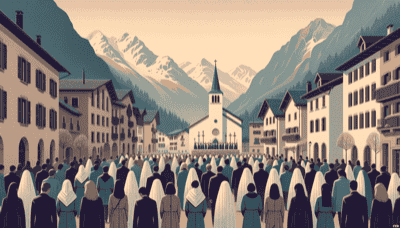We're here to help you keep count of the days to or since a date. Just click the button below and enter your chosen date to get started. Also choose the suggested days or search for a special day above #countingthedays

Good Friday in East Timor, or Sexta-Feira Santa as it is known in Portuguese, is a significant public holiday within this predominantly Catholic nation. The day commemorates the crucifixion of Jesus Christ and his death at Calvary, an event of profound religious importance leading up to Easter Sunday, which celebrates the resurrection.
East Timor's religious landscape was significantly shaped by its history as a Portuguese colony. Catholicism was introduced by missionaries and became deeply rooted in the culture. The country's struggle for independence from Indonesia, which was predominantly Muslim, further solidified Catholicism as an element of national identity.
On Good Friday, people tend to engage in quiet activities that reflect the somber nature of the day. Public life slows down considerably as businesses close and families gather to attend church services together.
Despite being a day focused on suffering and sacrifice, Good Friday sets the stage for Easter celebrations. It plays a crucial role in East Timor's Holy Week observances, underscoring themes of resilience and hope that resonate with the nation's historical struggles for freedom and peace.